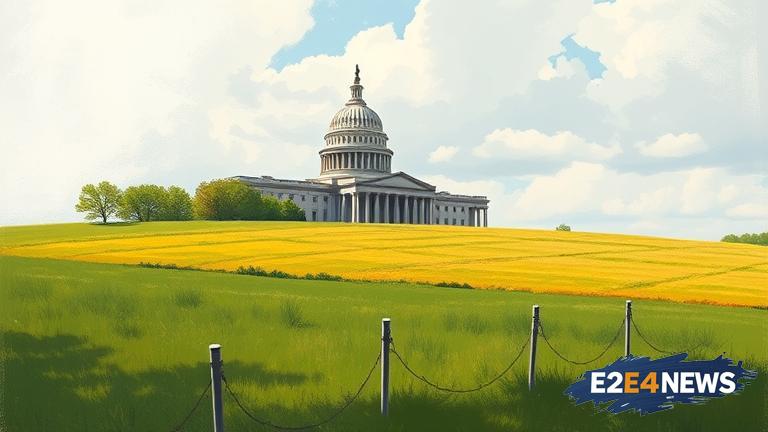A new bill proposed by Iowa lawmakers aims to limit the power of eminent domain, which allows the government to seize private property for public use. The bill, introduced in the Iowa House of Representatives, would require that property owners be fairly compensated for their land and that the government demonstrate a clear public need for the property. Proponents of the bill argue that it is necessary to protect the rights of property owners, who are often forced to sell their land to the government at below-market rates. They also argue that the current system is ripe for abuse, with government agencies using eminent domain to benefit private developers rather than the public. On the other hand, opponents of the bill argue that it would hinder the government’s ability to build critical infrastructure, such as roads and bridges. They also argue that the bill would drive up the cost of public projects, as the government would be required to pay higher prices for the land. The bill has sparked a heated debate among property owners, government agencies, and developers, with each side presenting their own arguments and concerns. Some property owners have spoken out about the trauma and financial hardship they have experienced as a result of eminent domain, while others have expressed support for the bill, citing the need for greater protections for property owners. The Iowa Farm Bureau has also come out in support of the bill, arguing that it would help to protect the state’s agricultural land from unnecessary development. However, some government agencies have expressed concerns that the bill would limit their ability to build critical infrastructure, such as highways and public utilities. The bill is currently making its way through the legislative process, with lawmakers considering amendments and revisions. If passed, the bill would go into effect on January 1, 2024, and would apply to all eminent domain proceedings in the state. The proposed bill has also raised questions about the role of government in regulating private property and the balance between public need and individual rights. As the debate continues, it remains to be seen whether the bill will become law and what impact it will have on property owners and government agencies in Iowa. The bill’s fate will likely depend on the outcome of negotiations between lawmakers, property owners, and government agencies. In the meantime, property owners and developers are watching the situation closely, eager to see how the proposed changes will affect their interests. The proposed bill is a significant development in the ongoing debate over eminent domain in Iowa, and its outcome will have important implications for the state’s property owners and government agencies. The bill’s provisions would provide greater protections for property owners, but could also limit the government’s ability to build critical infrastructure. Ultimately, the bill’s success will depend on its ability to balance the competing interests of property owners, government agencies, and developers.
